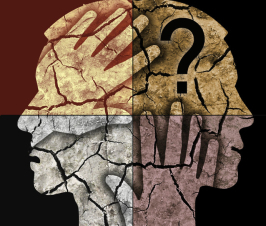New research from McMaster University suggests the pandemic has created a paradox where mental health has become both a motivator for and a barrier to physical activity.
People want to be active to improve their mental health but find it difficult to exercise due to stress and anxiety, say the researchers who surveyed more than 1,600 subjects in an effort to understand how and why mental health, physical activity and sedentary behavior have changed throughout the course of the pandemic. The results are outlined in the journal PLOS ONE.
“Maintaining a regular exercise program is difficult at the best of times and the conditions surrounding the COVID-19 pandemic may be making it even more difficult,” says Jennifer Heisz, lead author of the study and an associate professor in the Department of Kinesiology at McMaster.
“Even though exercise comes with the promise of reducing anxiety, many respondents felt too anxious to exercise. Likewise, although exercise reduces depression, respondents who were more depressed were less motivated to get active, and lack of motivation is a symptom of depression,” she says.
Respondents reported higher psychological stress and moderate levels of anxiety and depression triggered by the pandemic. At the same time, aerobic activity was down about 20 minutes per week, strength training down roughly 30 minutes per week, and sedentary time was up about 30 minutes per day compared to six months prior to the pandemic.
Those who reported the greatest declines in physical activity also experienced the worst mental health outcomes, the researchers reported, while respondents who maintained their physical activity levels fared much better mentally.
Researchers also found economic disparities played a role, particularly among younger adults.
“Just like other aspects of the pandemic, some demographics are hit harder than others and here it is people with lower income who are struggling to meet their physical activity goals,” says Maryam Marashi, a graduate student in the Department of Kinesiology and co-lead author of the study. “It is plausible that younger adults who typically work longer hours and earn less are lacking both time and space which is taking a toll.”
After analyzing the data, the researchers designed an evidence-based toolkit which includes the following advice to get active:
- Adopt a mindset: Some exercise is better than none.
- Lower exercise intensity if feeling anxious.
- Move a little every day.
- Break up sedentary time with standing or movement breaks.
- Plan your workouts like appointments by blocking off the time in your calendar.
“Our results point to the need for additional psychological supports to help people maintain their physical activity levels during stressful times in order to minimize the burden of the pandemic and prevent the development of a mental health crisis,” says Heisz.
1. Maryam Yvonne Marashi, Emma Nicholson, Michelle Ogrodnik, Barbara Fenesi, Jennifer J. Heisz. A mental health paradox: Mental health was both a motivator and barrier to physical activity during the COVID-19 pandemic. PLOS ONE, 2021; 16 (4): e0239244 DOI: 10.1371/journal.pone.0239244

Razi Berry is the founder and publisher of the journal Naturopathic Doctor News & Review, which has been in print since 2005, and the premier consumer-faced website of naturopathic medicine, NaturalPath. She is the host of The Love is Medicine Project docuseries, The Natural Cancer Prevention Summit, The Heart Revolution-Heal, Empower and Follow Your Heart, and the popular 10-week Sugar Free Summer program. From a near death experience as a young girl that healed her failing heart, to later overcoming infertility and chronic fatigue syndrome and fibromyalgia through naturopathic medicine, Razi has lived the mind/body healing paradigm. Her projects uniquely capture the tradition and philosophy of naturopathy: The healing power of nature, the vital life force in every living thing and the undeniable role that science and mind/body medicine have in creating health and overcoming dis-ease. You can follow Razi on social media: Facebook at Razi Berry, Instagram at Razi.Berry and join the Love is Medicine group to explore the convergence of love and health. Look for more, and listen to more Love is Medicine podcast episodes here.

















